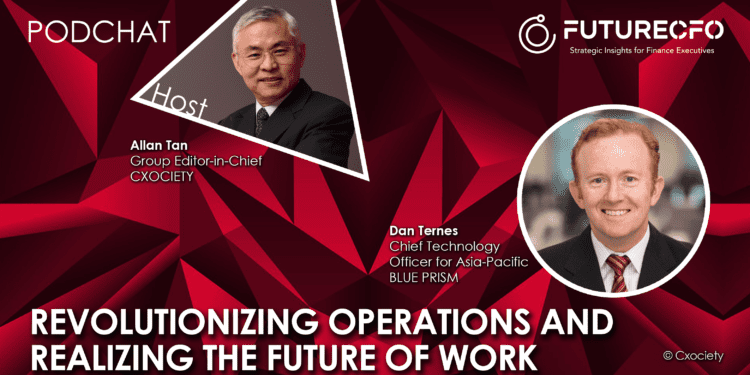Gartner predicts that 90% of large organizations globally will adopt Robotic process automation (RPA) in some form by 2022 and will triple the capacity of their existing RPA portfolios through 2024.
According to Boston Consulting Group (BCG), CFOs are under the gun and need to manage the growing burden of regulatory controls while being proactive advisors to the business and ensuring a focus on the bottom line.
Dan Ternes, chief technology officer for Asia-Pacific with Blue Prism, points out that RPA is not an exclusive domain of the finance function. “It (RPA) is a horizontal technology. “It applies to finance. It applies to the call centre. It applies to back-office functions,” he listed.
Click on the PodChat player to listen to Ternes describe the future use cases of RPA and the added value that artificial intelligence brings to the RPA.
- In the context of the finance function what is RPA?
- How has RPA changed how work is performed?
- How will AI and/or machine learning transform automation?
- How does this transformation impact the workplace?
b. Do you see even greater concern by the workforce around an AI-powered automation tool (as compared to plain-vanilla RPA and automation tools)?
- Is adopting an AI in the workplace a simple matter of introducing the new tools? (please elaborate)
- Can you cite use cases?
- If an organization is already using RPA tools, how will they approach introducing smart RPA tools?
- Any precautions/considerations to take in deciding what tools to keep, acquire or integrate?
- What does the future of an AI-enabled workplace look like?
- At what point, do you anticipate this to be the norm rather than exception?




